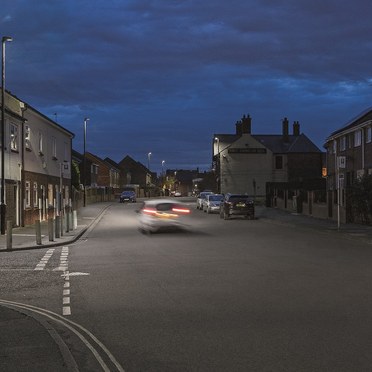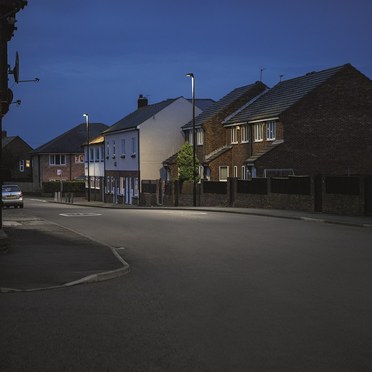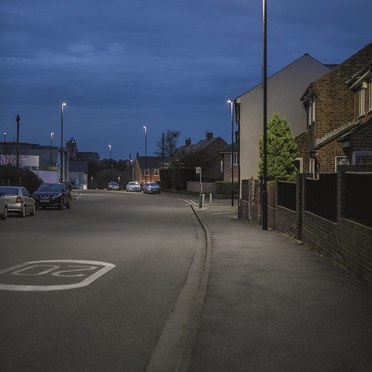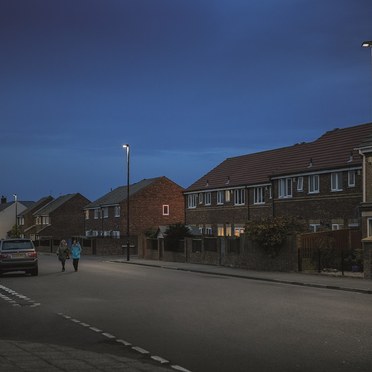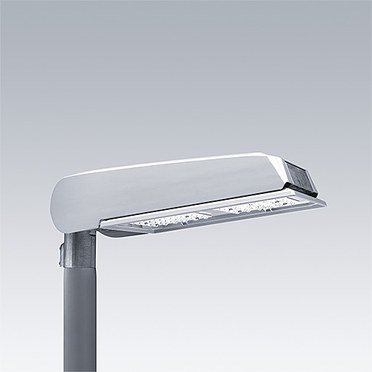North Tyneside saves cash and slashes carbon emissions
Products
- Lamp efficacy
Lamp efficacy
Ensuring the lamp efficiently converts electricity into light (lm/W).
- Ballast classification
Ballast classification
Controlling the electricity supply to the lamp (Energy Efficiency Index).
- Luminaire distribution
Luminaire distribution
Controlling light emission using optics which bend and shape the light to the correct location.
- System efficacy
System efficacy
Combining optical and thermal control within the luminaire (luminaire lm/W).
- Presence/absence detection
Presence/absence detection
Presence: Lights automatically turn on/off with movement. Absence: Lights automatically turn off and must be manually switched on.
- Daylight detection
Daylight detection
Artificial lighting which responds to the natural light conditions.
- Constant illuminance
Constant illuminance
A function designed to produce correct light levels for the duration of the maintenance period.
- Task-scene setting
Task-scene setting
Allowing the user to set scenes and adapt the lighting to different tasks.
- Timed off
Timed off
Automatic cut-off can be installed to turn all lights off during unoccupied hours.
- Task lighting
Task lighting
Lighting task areas with the correct amount of light.
- Zoning of lighting
Zoning of lighting
Lighting is zoned according to area use.
- Maintenance schedule
Maintenance schedule
Maintenance must be performed in response to product age, performance and environment.
- Waste light
Waste light
Eliminating waste light which does not hit the intended target.
- Reflectance
Reflectance
Taking advantage of light which is reflected from the surface within the space.
- Visible smart metering
Visible smart metering
Results of actions can be quickly seen as increased or decreased energy use to encourage responsible energy consumption.
Thorn Lighting is helping North Tyneside Council to save millions of pounds and help the environment through the refurbishment of thousands of street lamps. 7,300 sodium lamps across the borough are set to be replaced with modern energy efficient LED street lights and so far almost 4,000 old street lamps have been replaced with Thorn’s Civiteq highly effective LED lighting thanks to a partnership between the council and SSE Enterprise.
It is estimated that the scheme, which is due for completion in June 2018, will generate savings of £7.9 million over the next 17 years and will slash carbon emissions by 1,500 tonnes a year, which represents a 7% reduction in the council’s carbon footprint. The £1.95 million upgrade will save around £465,000 annually and will have paid for itself within five years. SSE Enterprise, who specified Thorn luminaires for the scheme, manages street lighting in North Tyneside on behalf of the council. (NOTE: This is a Council funded project)
Thorn’s Civiteq is a cost effective LED road lighting solution that offers the best possible balance between cost of ownership and performance, easily adapting to any installation layout. Its R-PEC® optic has been designed to provide safe and efficient light on residential streets and busy roads. 12 precise light distributions deliver unparalleled versatility, whilst Civiteq’s Bi-Power switch can be used to activate or deactivate dimming on site.
Councillor John Stirling, Cabinet Member for the Environment, said: “The new LED lights are more cost-effective and efficient than traditional lamps in every way. They’re longer-lasting, cheaper to maintain, and they help the council to reduce its carbon footprint while also reducing light pollution. I think this is an excellent example of the council using innovation and modern technology, while investing to save. The project will go a long way towards meeting our carbon reduction targets in the coming years, and will also help us financially as we continue to meet the challenge of a reducing budget.”

